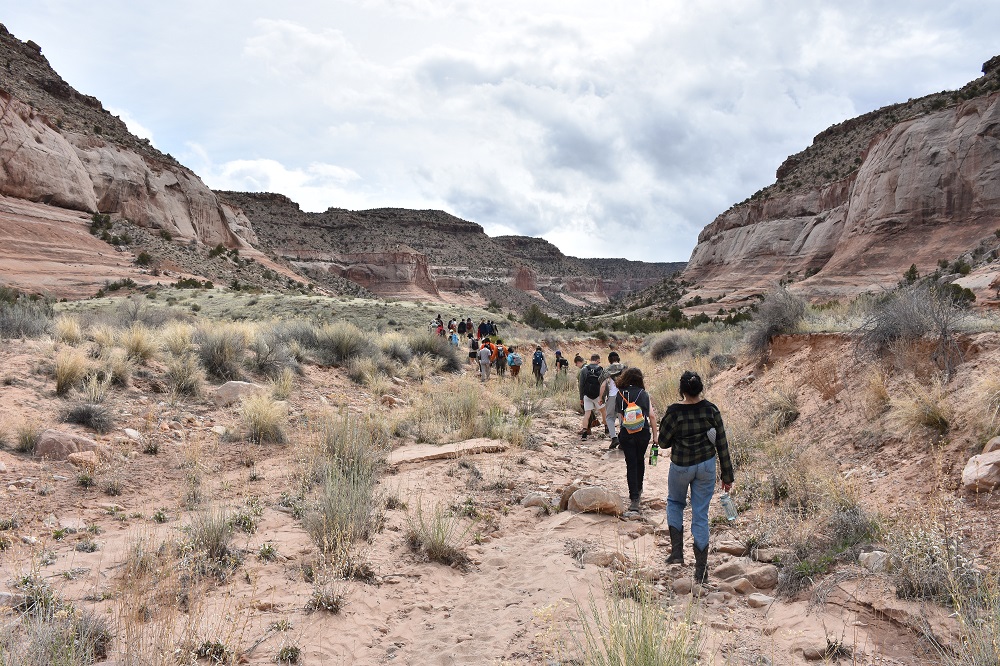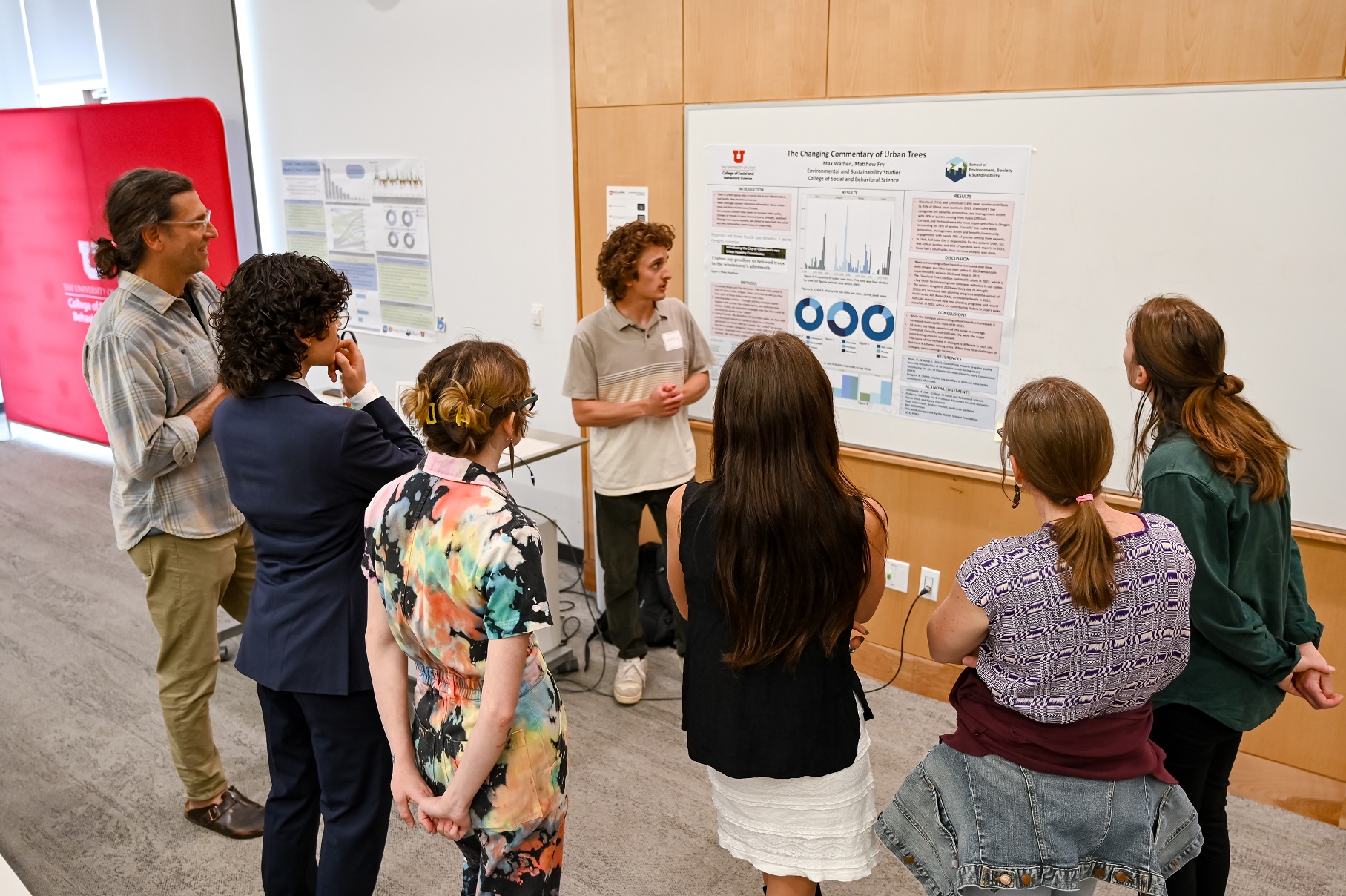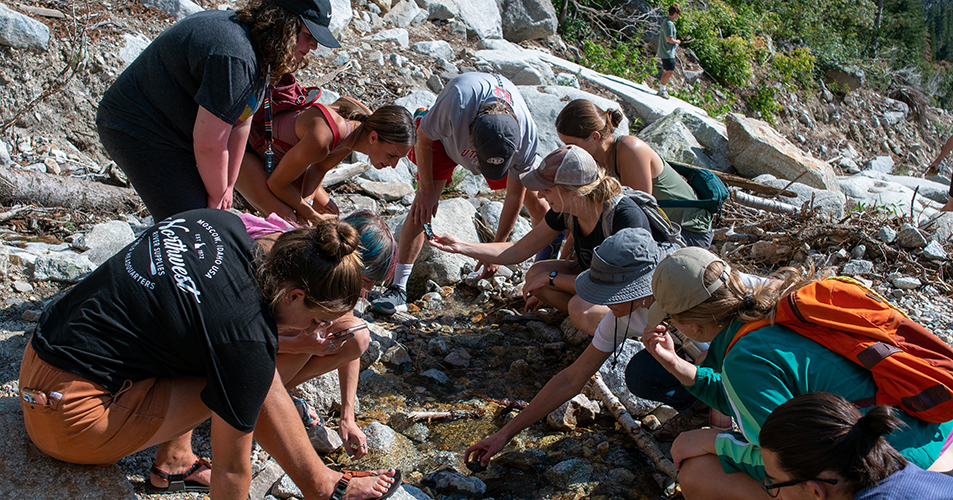The School of Environment, Society and Sustainability (ESS) promotes an integrated understanding of the environment, societies, and the interactions between them, with a curriculum rooted in diverse approaches that helps students understand and contribute to solutions for some of the greatest challenges we face today.
Interdisciplinary learning is a cornerstone of ESS. The 25 faculty in ESS span physical, social, and data science, exposing students to a wide variety of perspectives and cultivating holistic understanding for addressing societal challenges.
ESS offers degrees in three STEM fields and encourages internships and engagement with local communities to make meaningful contributions to solving challenges:
- Environmental and Sustainability Studies (ENVST) provides undergraduate degrees that emphasize an interdisciplinary understanding of ecological systems, human societies, and the consequences of human-environment interactions, and gives students maximum flexibility in taking courses from departments across the University of Utah.
- Geography also focuses on human-environment interactions with additional depth examining these interactions and global change across space and time, offering degrees at the Bachelor’s, Master’s, and PhD levels.
- Geographic Information Science (GIS) focuses on practical skills development involving geospatial analysis, visualization, and modeling. Degrees at the Bachelor’s and Master’s level provide the skills needed for a variety of rapidly growing career opportunities.
The School’s applied, integrative, and solutions-oriented approach is driven by impactful faculty and student research. Faculty in ESS are actively studying a wide range of societally important questions at critical intersections of environment and society. For example: How has the threat from wildfire changed over time, and who is most vulnerable to fires? Why are citizens in lower income neighborhoods exposed to more pollution, and what steps can be taken to reduce exposure? How are glaciers and winter snowpack changing, and what does that mean for water resources? How are agriculture and climate related to migration patterns? How are cities and natural landscapes changing over time, and what are the long-term effects on our health and sustainability? Through a collaborative interdisciplinary lens, ESS advances fundamental socially relevant knowledge for resolving the most significant challenges that we face.
ESS was founded in 2024 by combining two esteemed programs at the University of Utah: the Department of Geography and the Program in Environmental and Sustainability Studies.
Blog
-

Undergraduate Research Opportunities
Learn about opportunities for undergraduate research at the U!
-

Sonam Sherpa: ESS Welcomes Newest Faculty Member
Dr. Sherpa is an Earth Scientist joining faculty as an Associate Professor.
-

Snow Hydro Lab Brings the Heat to the Western Snow Conference!
The Snow HydRO Lab shares their research at the Western Snow Conference!
-

CSBS Student Research Day
Congratulations to our students for presenting their research at 2025 CSBS Student Research Day!
Events
-
Jul 04
Friday
Holiday: Independence Day
-
Jul 11
Friday
Summer 2025 Second Half - Last day to withdraw from classes
-
Jul 24
Thursday
Holiday: Pioneer Day
-
Jul 25
Friday
Summer 2025 Full Term - Last day to reverse CR/NC option
-
Jul 25
Friday
Summer 2025 Second Half - Last day to reverse CR/NC option
-
Jul 28
Monday
Fall 2025 - Open enrollment





